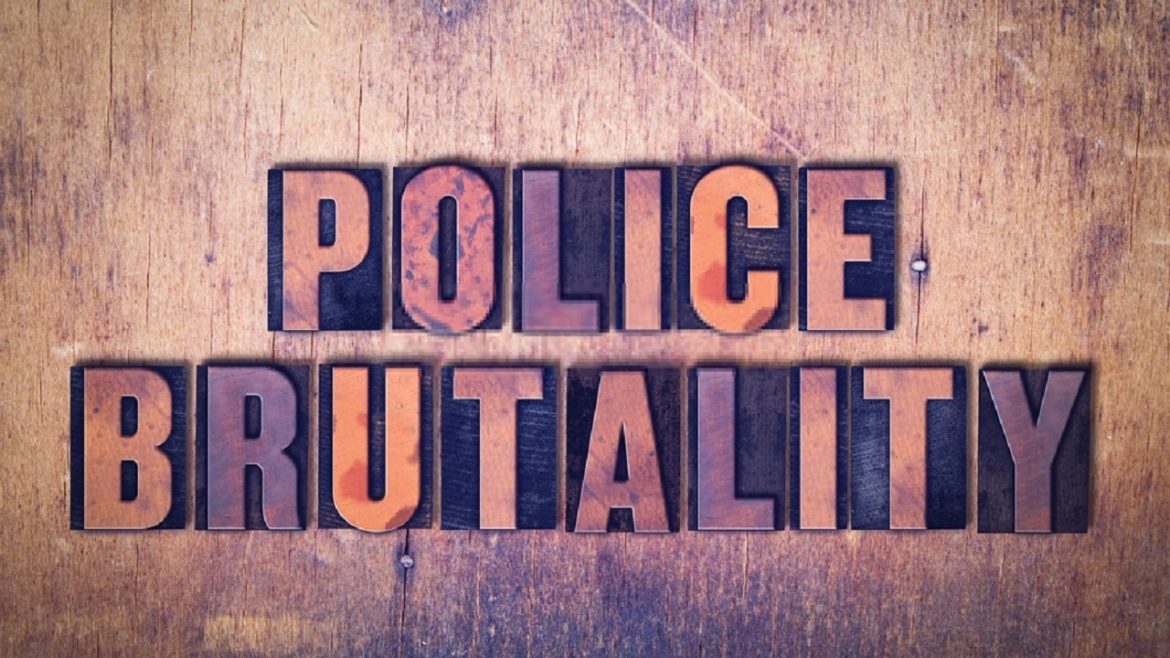The use of excessive force by law enforcement has become a focal point of public discourse, particularly in the context of police-community relations. Excessive force refers to situations where law enforcement officers employ more physical power than is necessary to subdue a suspect or control a situation. This can manifest in various forms, including physical violence, the use of weapons, or aggressive tactics that escalate rather than de-escalate a confrontation.
High-profile incidents, such as the deaths of individuals like George Floyd and Eric Garner, have sparked widespread outrage and calls for reform, highlighting the urgent need for accountability and transparency within police departments. The implications of excessive force extend beyond individual cases; they contribute to a broader culture of fear and mistrust between communities and law enforcement. When officers resort to unnecessary violence, it not only undermines the legitimacy of their authority but also perpetuates cycles of violence and retaliation.
Communities that experience frequent incidents of excessive force often report feelings of alienation and disenfranchisement, leading to a breakdown in communication and cooperation with law enforcement. This dynamic can create an environment where crime rates may actually increase, as community members become less willing to report crimes or cooperate with investigations due to fear of retribution or further violence.
Key Takeaways
- Use of excessive force: Law enforcement should only use force when absolutely necessary and in proportion to the threat posed.
- Racial profiling: Officers should not target individuals based on their race or ethnicity, and should instead focus on behavior and evidence.
- Unlawful arrest and detention: Police must have probable cause and follow proper procedures when making an arrest, and individuals should not be unlawfully detained.
- Sexual misconduct: Any form of sexual harassment or abuse by law enforcement officers is unacceptable and should be thoroughly investigated and punished.
- Bribery and corruption: Officers should not accept bribes or engage in corrupt practices, and should uphold the highest standards of integrity and honesty.
- Abuse of power: Law enforcement officers should not misuse their authority for personal gain or to infringe on the rights of others.
- False evidence and perjury: Fabricating evidence or lying under oath is a serious breach of trust and undermines the justice system.
- Failure to intervene: Officers have a duty to intervene and prevent misconduct by their colleagues, and failure to do so is a failure to uphold their responsibilities.
Racial profiling
Here is the rewritten text with 3-4 **Racial Profiling: A Deeply Entrenched Issue**
Racial profiling is a pervasive problem within law enforcement practices, characterized by the disproportionate targeting of individuals based on their race or ethnicity rather than any specific evidence of wrongdoing. This practice not only violates fundamental principles of equality and justice but also perpetuates systemic racism within the criminal justice system.
**The Consequences of Racial Profiling**
Studies have shown that people of color, particularly Black and Latino individuals, are more likely to be stopped, searched, and arrested compared to their white counterparts, even when controlling for crime rates in various neighborhoods. The consequences of racial profiling are far-reaching. Victims often experience psychological trauma from being unjustly targeted, which can lead to a pervasive sense of fear and mistrust towards law enforcement. Moreover, racial profiling can result in wrongful arrests and convictions, further entrenching racial disparities within the justice system.
**The Impact on Communities**
The impact is not limited to individuals; entire communities suffer as a result of these practices, leading to strained relationships between law enforcement and the populations they are meant to serve. Efforts to combat racial profiling have included policy reform, community engagement initiatives, and training programs aimed at promoting cultural competency among officers.
**Combating Racial Profiling**
Efforts to combat racial profiling have included policy reform, community engagement initiatives, and training programs aimed at promoting cultural competency among officers. By addressing racial profiling, we can work towards a more just and equitable society for all.
Unlawful arrest and detention

Unlawful arrest and detention occur when law enforcement officers apprehend or hold individuals without sufficient legal justification. This violation of civil liberties can stem from a variety of factors, including inadequate training, systemic biases, or a lack of understanding regarding the legal standards for arrest. The consequences for individuals subjected to unlawful arrest can be severe, ranging from emotional distress to significant disruptions in their personal and professional lives.
In some cases, individuals may spend days or weeks in custody before being exonerated, leading to lasting repercussions such as job loss or damage to personal relationships. The legal framework surrounding arrests is designed to protect citizens from arbitrary detention. The Fourth Amendment of the United States Constitution safeguards against unreasonable searches and seizures, requiring law enforcement to have probable cause before making an arrest.
However, instances of unlawful arrests continue to occur, often disproportionately affecting marginalized communities. Advocacy groups have called for greater oversight and accountability measures within police departments to address these issues. Additionally, public awareness campaigns aim to educate citizens about their rights during encounters with law enforcement, empowering them to challenge unlawful detentions.
Sexual misconduct
Sexual misconduct by law enforcement officers represents a grave violation of trust and authority. This misconduct can take many forms, including sexual harassment, assault, or coercion, often occurring in situations where victims feel vulnerable or powerless. The power dynamics inherent in police-civilian interactions can exacerbate these abuses, as victims may fear retaliation or disbelief if they come forward with allegations against an officer.
High-profile cases have revealed a disturbing pattern of sexual misconduct within police departments across the country, prompting calls for comprehensive reforms aimed at preventing such abuses. The impact of sexual misconduct extends beyond individual victims; it erodes public trust in law enforcement as a whole. When officers engage in predatory behavior, it sends a message that they are above the law and unaccountable for their actions.
This perception can deter victims from reporting crimes or seeking assistance from law enforcement in the future. To combat this issue, many police departments are implementing stricter policies regarding officer conduct and establishing independent oversight bodies to investigate allegations of sexual misconduct. Training programs focused on ethics and appropriate conduct are also being introduced to foster a culture of respect and accountability within law enforcement agencies.
Bribery and Corruption
Bribery and corruption within law enforcement undermine the integrity of the justice system and erode public confidence in those sworn to protect and serve. Corruption can manifest in various ways, including officers accepting bribes to overlook criminal activity or engaging in illegal activities themselves. Such behavior not only compromises the rule of law but also perpetuates cycles of crime and injustice within communities.
The consequences of corruption can be particularly devastating in marginalized neighborhoods where residents may already feel vulnerable to exploitation. Efforts to combat bribery and corruption have included the establishment of internal affairs divisions within police departments tasked with investigating allegations against officers. Additionally, community oversight boards have been proposed as a means of increasing transparency and accountability in policing practices.
Public awareness campaigns aimed at educating citizens about their rights and encouraging them to report corrupt practices are also essential components of addressing this pervasive issue. By fostering a culture of integrity within law enforcement agencies, communities can work towards rebuilding trust and ensuring that officers are held accountable for their actions.
Abuse of power

Consequences of Power Abuse
When individuals perceive that officers are acting outside the bounds of their authority, it can lead to widespread distrust and reluctance to engage with law enforcement. The ramifications of power abuse extend beyond individual incidents; they can create systemic issues within policing practices. For example, when officers engage in discriminatory practices or target specific communities based on bias rather than evidence, it perpetuates cycles of inequality and injustice.
Systemic Issues and Inequality
The consequences of power abuse can have far-reaching effects, perpetuating systemic issues within policing practices. Discriminatory practices and biased targeting of communities can lead to cycles of inequality and injustice, further eroding trust between law enforcement and the communities they serve.
Addressing Abuse of Power
Addressing abuse of power requires comprehensive training programs focused on ethics and community engagement, as well as robust oversight mechanisms that hold officers accountable for their actions. By fostering a culture of respect for civil rights within law enforcement agencies, communities can work towards rebuilding trust and ensuring that officers serve as protectors rather than oppressors.
False Evidence and Perjury
False evidence and perjury represent serious violations within the criminal justice system that can lead to wrongful convictions and miscarriages of justice. When law enforcement officers fabricate evidence or provide false testimony under oath, they undermine the very foundation of the legal system built on truth and accountability. Such actions not only jeopardize individual lives but also erode public trust in law enforcement agencies tasked with upholding justice.
The consequences of false evidence can be devastating for those wrongfully accused or convicted. Innocent individuals may spend years behind bars due to fabricated evidence or misleading testimonies that skew the judicial process. High-profile cases have highlighted the prevalence of this issue, prompting calls for reforms aimed at increasing transparency within investigations and ensuring that evidence is collected and presented ethically.
Additionally, advocacy groups are working tirelessly to raise awareness about the importance of accountability in law enforcement practices, emphasizing the need for independent oversight bodies capable of investigating allegations of misconduct.
Failure to Intervene
The failure to intervene when witnessing misconduct by fellow officers is a critical issue that has garnered significant attention in recent years. This phenomenon occurs when officers observe inappropriate behavior—such as excessive force or discriminatory practices—but choose not to take action against their colleagues. Such failures not only perpetuate a culture of impunity within police departments but also contribute to public perceptions that all officers condone unethical behavior.
The implications of failing to intervene extend beyond individual incidents; they can create an environment where misconduct becomes normalized within law enforcement agencies. When officers do not feel empowered or obligated to speak out against wrongdoing, it undermines efforts to promote accountability and transparency within policing practices. Training programs aimed at fostering a culture of intervention are essential for addressing this issue; these programs encourage officers to recognize their responsibility not only to uphold the law but also to hold their colleagues accountable for their actions.
By creating an environment where intervention is expected and supported, police departments can work towards rebuilding trust with the communities they serve while ensuring that ethical standards are upheld at all levels.
If you are interested in learning more about police misconduct in the context of traffic accidents, you may want to check out this article on hit-and-run accidents. This article discusses how Police Misconduct can impact the investigation and prosecution of hit-and-run cases, highlighting the importance of holding law enforcement accountable for their actions.
FAQs
What is police misconduct?
Police misconduct refers to inappropriate or illegal actions taken by law enforcement officers, including but not limited to excessive use of force, racial profiling, corruption, and abuse of power.
What are examples of police misconduct?
Examples of police misconduct include excessive use of force, false arrest, racial profiling, sexual harassment, bribery, tampering with evidence, and abuse of authority.
How does police misconduct affect communities?
Police misconduct can erode trust between law enforcement and the communities they serve, leading to increased tension, fear, and a lack of cooperation with police. It can also result in wrongful convictions, injuries, and deaths.
What are the consequences of police misconduct?
Consequences of police misconduct can include civil lawsuits, criminal charges, disciplinary action, and termination of employment for the officers involved. Additionally, it can lead to public outrage, protests, and calls for police reform.
How can police misconduct be addressed?
Police misconduct can be addressed through accountability measures such as body cameras, civilian oversight boards, improved training, and the implementation of policies and procedures that promote transparency and accountability within law enforcement agencies.

